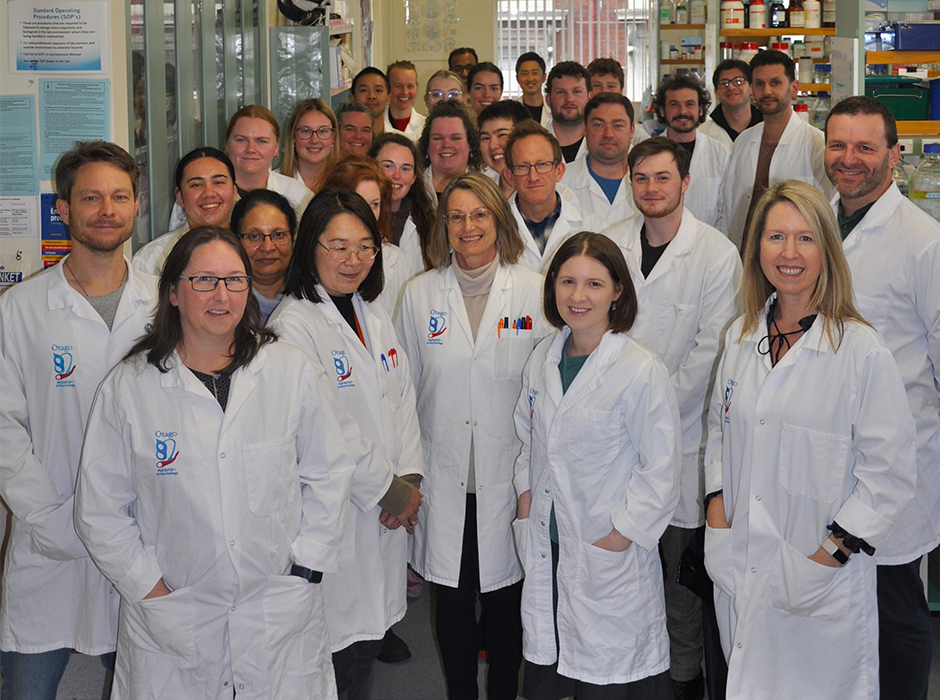
The CNE publishes approximately 30 peer-reviewed scientific papers a year and have secured $16 million in external research funding in the past five years alone.
Te Pokapū Mātai Taiāki Iaia, the Centre for Neuroendocrinology (CNE), believes the support they receive from the University and their departments, as well as their genuine collegiality, is what led to them winning this year’s Otago Research Group Award.
Based in the School of Biomedical Sciences, the CNE has approximately 60 members across 11 key research groups that all produce internationally recognised research in the field of neuroendocrinology.
CNE Director, Professor Rebecca Campbell, says the team is so excited to have won the award, especially given it’s the 20th anniversary of the Centre.
“I feel fortunate to work in a group that is so authentically collaborative,” Professor Campbell says.
“Though the Centre has many members, we all have a deep sense of identity in the space and believe the work we do is greater than the sum of our parts; a feeling which can largely be attributed to the University and departmental support we have received.”
Over the past 20 years, the Centre has evolved from being a small group of researchers operating across different buildings, into the considerable cross-departmental research hub it is now, which includes shared lab space to increase the efficiency and collaboration of the team.
“We are grateful to our different departments who have allowed us to break down barriers and work as a collaborative unit,” she says.
The Centre’s research is in neuroendocrinology; how the brain controls hormones and how hormones can, in turn, influence brain function.
The team is particularly interested in how these hormones control critical body functions like reproduction, water balance, body temperature, and food intake, as well as behaviours like stress responses and parental care, and how these change over the life span.
Their research endeavours include the recent development of a nutraceutical in Associate Professor Alexander Tups’ Laboratory, which is an extract from the Dahlia flower that helps improve glucose handling in the treatment of diabetes.
The Centre has also made important discoveries about the role of the brain in polycystic ovary syndrome, how the hormone prolactin affects parental behaviours, and the role of the hormone kisspeptin which is critical for puberty regulation and fertility.
“Being a university-supported Centre has enabled us to network on a wider scale, to send our staff and students to local and international research centres, and to bring international research leaders here to interact with us.
“This award makes for a very happy 20th birthday for the Centre, and I so look forward to how we grow and develop from here.”
-Kōrero by the Division of Health Sciences Communications Adviser, Kelsey Schutte.
